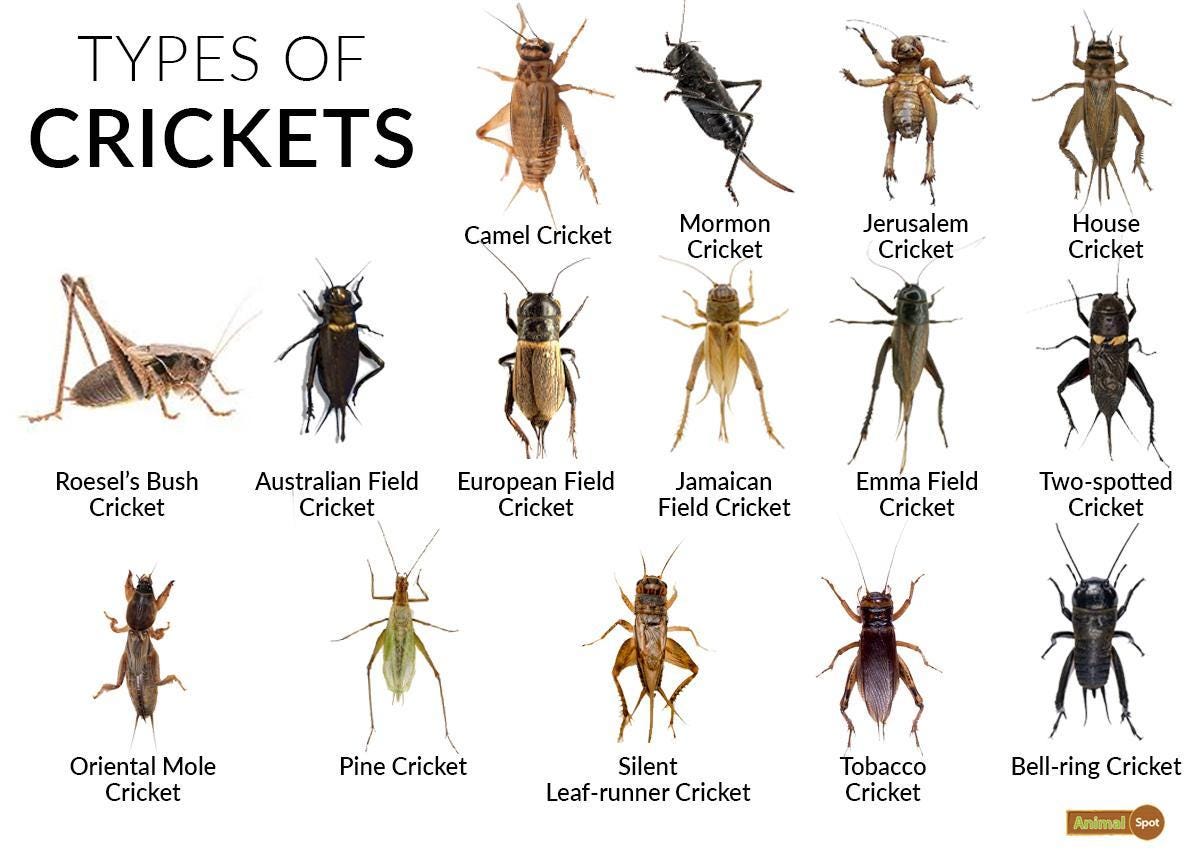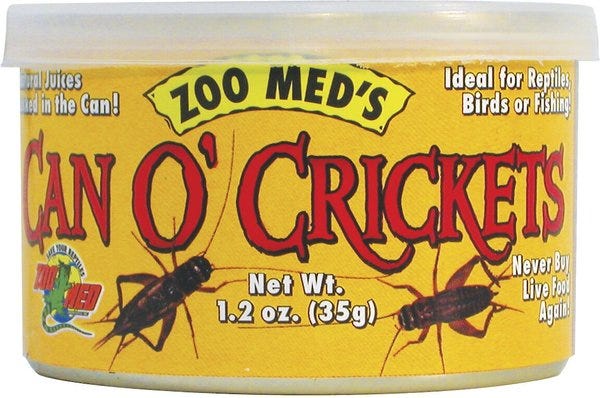Fritinancy has been my nom d’internet for about 15 years now. When I announced it as my blog’s new name in 2008, I published a little Q&A with myself by way of explanation. For this new start on Substack, I’ve edited and expanded the original post.
Q. Did you make that word up?
A. No, I did not. From Webster's Revised Unabridged Dictionary, 1913 edition:
Noun: A chirping or creaking, as of a cricket. (Obsolete.) Origin: Latin fritinnire, to twitter.

Q. How do you pronounce it?
A. Phonetically, more or less: FRIT-ih-nan-see.
Q. What was your naming process?
A. I'd originally called my blog Away With Words to play off my business name, Wordworking. I'd wanted the blog to be an opportunity to run away with words--to take them a little less seriously than I do in the world of commerce. But it turned out there was already another blog called Away With Words (still going strong in 2023!), as well as an English-Japanese-Cantonese-language movie (a k a San Tiao Ren) and a book (by Australian writer Ruth Wajnrjb) by the same name. And then there's A Way with Words, the public radio show about language hosted by Grant Barrett and Martha Barnette. (Also still going strong!) I confess that when I started blogging in June 2006 I hadn't yet heard of it. Mea maxima culpa. If I'd analyzed my own competitive namescape as critically as I do for my clients, I'd have told myself to go back to the drawing board.
Q. But why Fritinancy?
A. I explored other creative directions involving “words,” “names,” “language,” and other obvious concepts. None seemed distinctive, memorable, or appealing enough.
I considered some aliases I've used around the internets: Bon Mot, Wordworker, etc. Meh.
Then I began looking at my own name. My naming colleague Mark Gunnion had enjoyed my post about the term Friedman Unit and suggested I appropriate that term as a blog title. I was tempted—FriedmanUnit.com, .net, and .org were still available when I did the searching—but FU is permanently attached to New York Times columnist Tom Friedman (no relation), and I’m not eager to have my opinions confused with his.
So I turned my attention to my first name and began pushing it around.

Q. How did that work?
Several words, I realized, end with -nancy, and some seemed appropriate as titles for a blog about language. Consonancy (taken, alas). Dissonancy (taken). Resonancy (taken). Assonancy. (Okay, not Assonancy.)
Finally, a wild-card search turned up Fritinancy. I'd never encountered the word, which tickled me: there was my own all-too-familiar name peeping out from under those Edwardian-era skirts. And I was pleased to discover no one else had claimed it--not as a business name, not as a blog name, not as anything I could find except old dictionary definitions.
I liked those definitions. “Chirping” and “creaking”—not to mention “frittering”—seem like perfectly apt descriptions of what I do here.
And I like crickets. To have one in your house is supposed to bring good luck. And they’re nutritious, “like tiny land-lobsters and field-crabs,” wrote Silvia Killingsworth in “Crickets for Lunch,” published in 2013 in the New Yorker. I’ve eaten crickets and can vouch for their deliciousness.

Q. It’s an odd word, for sure.
“Fritinancy” is obscure, but not impossibly so. It's a fun word to say. In rescuing it from obsolescence, I felt I was doing a linguistic good deed. Here’s to old words, fun-to-say words, and words that tell a story.




Also, I always think of fritillaries which are wildflowers in Oxford...& I've just learnt they are also a kind of butterfly. So beautiful flowers & butterflies - I think you have just come from a swim in one of your profile photos...dewy, like a flower. [I never thought the "Nancy" who goes with Sluggo was very attractive, so I've overwritten her with other images of your name in my mind.]